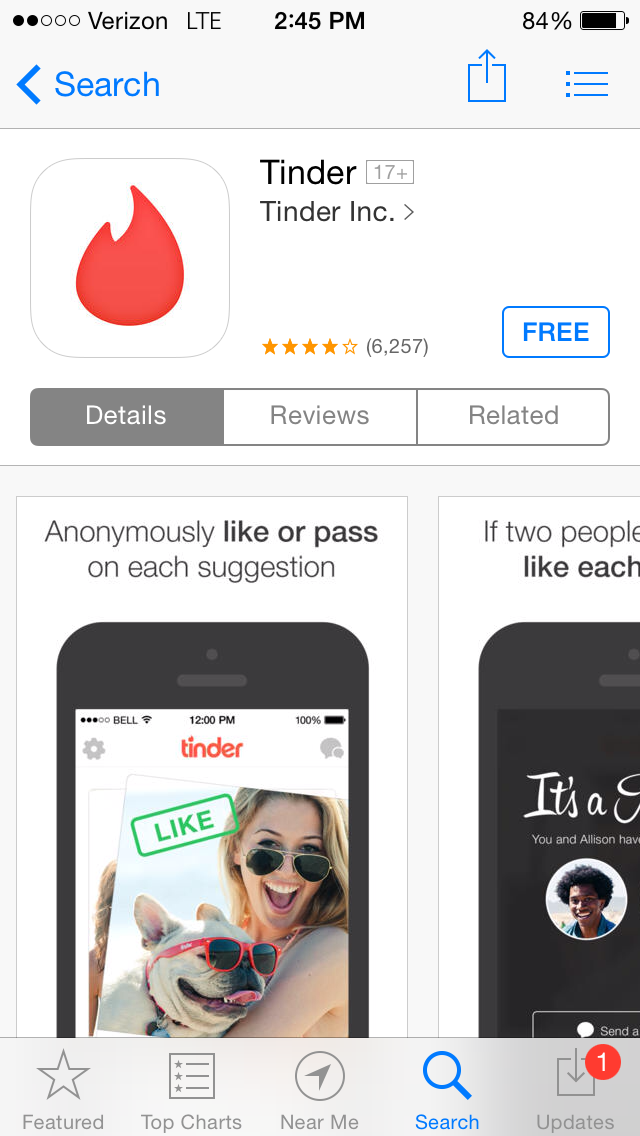



.




Rhetoric & Popular Phone Apps on College Campuses

Tinder
.
.
.
The next phone app that I want to look at is Tinder. Tinder is a social application where people can meet others. The application is based on a fairly simple idea: the app will match users with other users in their area, and users can either “swipe right” if they would like to chat with the other user or “swipe left” if they do not want to chat with the other user. If the other user “swipes right” as well, the two users can now contact each other.
Because I do not have a Tinder myself, I did a short interview with a fellow JMU student named Daniel to find out what kind of rhetoric he thought was associated with the device. When asked about what rhetoric he thought was associated with the app, he told me that he thought apps like Tinder attract people to it because they market the idea that the app can be used for people “to verify opinions that others have about them and to raise self-esteem.” I asked him more about this concept, and he explained that when you have a Tinder account, it can help your self-esteem because it can “show you what random people think about you, and you see that more people think that you’re attractive than you originally thought.” In other words, the app pulls people in by marketing itself as a self-esteem booster.
While he thought the app helped raised his self-esteem he did think that the application was associated with negative rhetoric. “It’s really superficial. Essentially, you decide if you want to talk with someone solely based on a few photos and a sentence that they put on their profile. You also tend to compare people to each other. If you get two matches and you’re talking to two different girls at the same time, you start comparing them, and wondering if you should stop talking to one of them. You don’t really compare people in real life though because they’re more real.”
Daniel’s opinion about the positive and negative rhetoric associated with Tinder is important because it shows how the application affects users, especially on college campuses. While the application can be used to boost self-esteem, it can also be used to unfairly compare people and dehumanize people. For this reason, it can be argued that while Tinder can help boost self-esteem, it does so at the price of dehumanizing others.
Works Cited
K, Daniel. Personal Interview. 20 Nov. 2014.